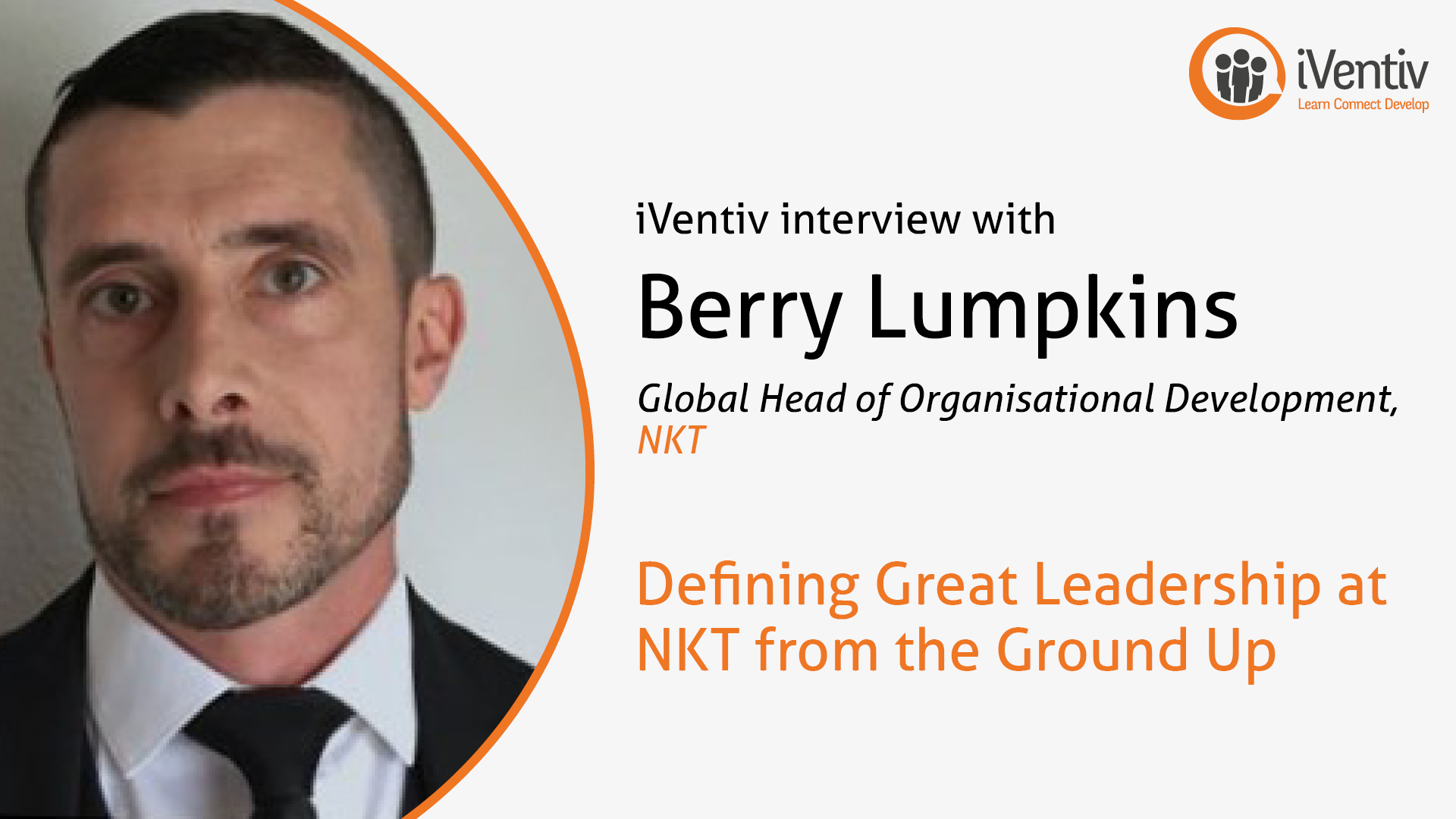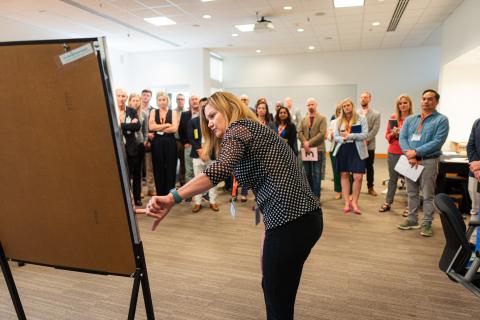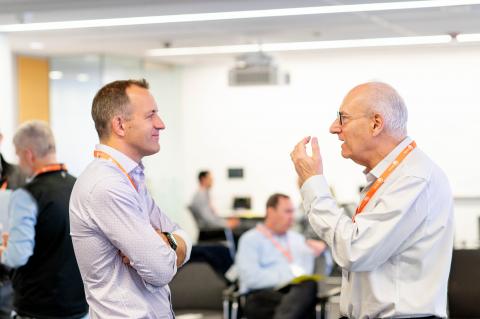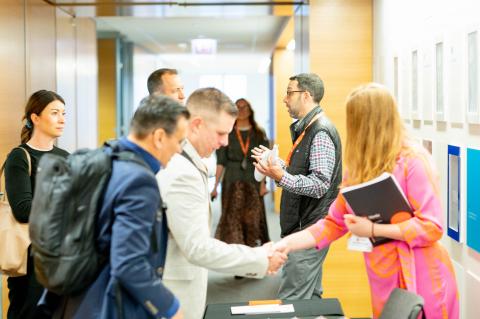Submitted by networkadmin on
Leadership Development continues to be a topic of huge interest to Global Heads of Learning, with 60.5% of you highlighting it as one if your priorities so far in 2024.
In a recent interview with Berry Lumpkins, Global Head of Organisational Development at NKT, Berry explained how the organisation has built its approach to Leadership Development from the ground-up, and, crucially, how important it was to have the CEO's buy-in for the whole process.
Why is Leadership so Important for the Learning Profession?
According to Berry, leadership is crucial in the Learning profession because it directly influences organisational culture and the "effectiveness of communication" within a company. Drawing on experiences from his career, particularly his time at NKT, Berry notes that leadership helps shape core values and strategic directions that resonate authentically with employees.
In crafting NKT’s HR Strategy for 2022 to 2026, Berry highlighted that a collaborative approach was essential in defining what great leadership looks like for the organisation. This process, he says, involved integrating employee input through crowdsourcing and focus groups – “a bottom-up approach to developing leadership ideals that align with the company’s growth trajectory.”
Underscoring the shift from traditional, directive leadership styles towards ones that prioritise trust over mere profitability, Berry reflects that this evolution reflects a broader trend where modern leadership is increasingly about fostering environments where employees “feel heard and valued”, rather than just following top-down orders.
Leadership in the Learning profession, he concludes, isn't just about guiding or instructing; it's about building a framework of shared beliefs that supports the company’s objectives while also “empowering its people.”
Getting the Conversation Started: The Importance of Amplifying Voices
The conversation about leadership and team engagement began with focus groups, Berry says, where participants were asked to reflect on their experiences with past leaders.
During the process, designed as a 90-minute structured brainstorming session, participants were asked three main questions aimed at understanding what qualities they valued in leaders, which were centred around:
- Past leadership experiences
- Current leadership needs
- Future leadership expectations
encompassing what leaders should stop, start, and continue doing.
The overwhelming response from these discussions highlighted that trust, empowerment, and genuine listening were crucial traits appreciated across the board. This consistent feedback across various demographics within the company, Berry explains, underlined a universal desire for leaders who could create a “learning culture based on trust.” This environment would enable employees to identify areas for improvement and access necessary resources confidently.
Making Employee Voices into Something Tangible
In Berry’s experience, turning these focus group findings into tangible business results involved a structured approach to engaging senior leadership and refining organisational expectations.
This process, he says, began with workshops where focus group insights on trust, empowerment, and innovation were shared with senior executives. Through several iterations, these insights were integrated into the organisation's existing values framework, culminating in a clear set of expectations for leaders.
Cleverly acronymed as "AC DC", these expectations were then tied to the organisation's core values:
- Advancing (preparing for the future)
- Connecting (collaboration and amplifying quieter voices)
- Delivering (fulfilment of commitment)
- Caring (fostering a safe, supportive work environment)
which aligns with the company’s role in cable technology for renewable energy sources. For Berry, this mnemonic not only reinforces the company's purpose but also serves as a practical reminder of values.
Building Leadership from the Ground Up & CEO Buy-in
“It’s a rare thing to have your most senior executives to be so invested […] in this type of initiative.”
In our conversation with Berry, he outlined a successful initiative in building Leadership Development with strong CEO buy-in. The project's key milestone was having the CEO personally announce the leadership principles during a live global broadcast.
But how was Berry able to secure such ‘rare’ buy-in from top-level execs?
He says that the truth lies in the organisation’s Scandinavian roots, it’s non-hierarchical structure, and its open-door office culture.
The approach that the organisation’s CEO took to being actively involved in the rollout of this initiative, according to Berry, ensured that the leadership principles were communicated as a core part of the company's strategic direction rather than just an HR initiative.
This direct involvement by the CEO set a powerful example for the rest of the organisation, reflecting a culture where executive leadership actively participates and promotes company values, enhancing the credibility and impact of the Leadership Development program.
Berry has two decades of experience across the Middle East, Europe, and the US across a range of industries. He is currently the Global Head of Organisational Development at NKT Group based in Copenhagen. Prior to joining the NKT Group, Berry held a number of global and regional roles with DP World, First Abu Dhabi Bank, Zurich Insurance Group, A.P. Moller-Maersk, and Siemens.
Frequently Asked Questions
Why is leadership development a priority for Global Heads of Learning in 2024?
Leadership development is a priority for 60.5% of Global Heads of Learning who attend iVentiv events. As Berry mentions, this is because it crucially influences organisational culture and communication effectiveness, which are key to successful business operations
What role does the CEO play in the Leadership Development process at NKT?
At NKT, the CEO's buy-in is critical as it ensures that leadership principles are fully integrated and supported at the highest level, enhancing implementation across the organisation.
How does leadership impact the Learning profession?
According to Berry, leadership impacts the Learning profession by shaping organisational culture and core values, guiding strategic directions, and fostering environments that support company objectives while empowering employees.
How are focus group findings iurned into tangible business results?
Berry turned these findings into results through workshops with senior executives, iterating insights on trust, empowerment, and innovation into the organisation’s values, leading to a set of clear expectations for leaders.
What does the acronym "ACDC" stand for in NKT’s leadership framework?
"ACDC" stands for Advancing, Connecting, Delivering, and Caring. These principles are tied to the organization’s core values and align with its role in renewable energy technology.










